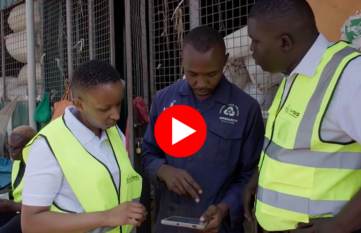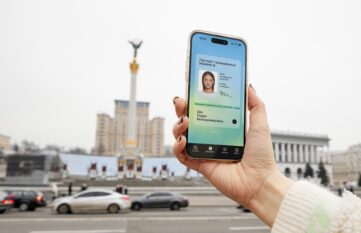Breaking down barriers: Translating dialogue into social protection for gig workers

Social protection systems were built in a different time. A time of industrial production, of sole breadwinner households and single career jobs. Now, we live in a world which is digital, flexible and diverse. Global online gig work has played a significant role in changing the dynamics of labour. Estimates suggest there are now up to 435 million online gig workers around the globe. Across the world many of these workers are classified as independent contractors, leading to a lack of or minimal access to social protection.
Governments are looking for ways to ensure that platform workers, no matter how they are classified, can access essential social protections. This means that when they fall ill, they don’t lose their income; when they don’t find work or reach old age, they have a basic level of financial security to fall back on. Social protection ensures that no one is left without support when they need it most. It’s a cornerstone of fair and inclusive economic growth and finding solutions for greater social protection provision is a key part of building resilient societies in the digital age.
Seeking solutions together: A global dialogue in Frankfurt
In a landmark gathering in Frankfurt end of October, policymakers, platform workers, and industry representatives joined forces to tackle one of the digital economy’s most urgent challenges: ensuring social protection for gig workers. Convened by the GIZ’s Gig Economy Initiative and Sector Initiative Social Protection on behalf of the German Federal Ministry for Economic Cooperation and Development (BMZ), the Social Protection Solution Lab partnered with the World Bank, the International Social Security Association (ISSA), and worked in close collaboration with the International Labour Organisation (ILO) to forge innovative pathways forward.
Bringing these key actors together in one room created a rare opportunity to shape the policy dialogue on the platform economy. By exchanging both their challenges and their successes, participants gained a clearer understanding of what and what doesn’t work, when designing policies for this new era of digital work.
From dialogue to action: Concrete prototypes for social protection
By discussing their needs as workers, exploring economic and digital opportunities from a platform perspective, and outlining the realities faced by policymakers, participants jointly developed solutions for different real-life cases. This collaborative process moved the cases beyond abstract discussion, turning them into practical, testable policy prototypes. For many participants, it was a rare opportunity to engage face-to-face with others working in the same field.
The workshop demonstrated significant potential for advancing social protection frameworks in the platform economy. Operating under Chatham House Rules to ensure freedom in expressing opinions and sharing recent political developments, four cases from Southern Asia, Sub-Saharan Africa and an international perspective were collaborated on. In one case, policy makers and worker representatives further developed an existing proposal for strengthening a social protection system that could benefit millions of platform workers. Whilst another case tested the option of shared insurance coverage, discussing practical approaches directly with policy makers and platform representatives. Participants also addressed the complexity of international data supply chains, contributing to the growing international discourse on the role of human labour in AI and the need for appropriate protections.
When international organisations, governments, platforms, and workers collaborate directly, a future of fair and decent gig economy becomes tangible. The personal nature of the workshop proved pivotal in reaching meaningful progress on the new challenges brought about by our evolving digital world of work.








